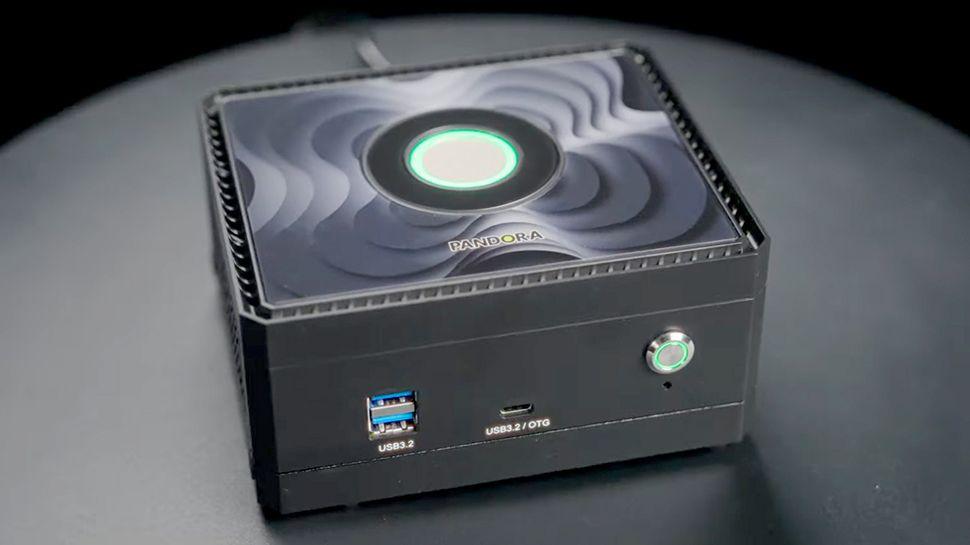- Pandora is ‘mini AI hardware’ trapped in a mini PC form factor
- Uses Nvidia’s Jetson Orin NX Super platform
- Comes with 128GB SSD and Ubuntu OS, in a chassis weighing less than 500g
Palit, Nvidia’s largest add-on card partner, has been a key supplier in the global video card market for more than 30 years. Best known for its range of Nvidia GeForce graphics cards, the company is now getting into AI with Pandora, a compact mini PC device designed for edge AI computing.
Pandora (advertised in a YouTube video viewed by videocardz) measures just 121mm x 145mm x 66mm and weighs 470g. Although it looks like a mini PC, the new device is described as “mini AI hardware” and is designed specifically for tasks such as AI inference, machine learning acceleration, and robotics.
Powered by the Nvidia Jetson Orin NX Super platform, Pandora is available in two versions with 8 GB or 16 GB of RAM, offering 117 and 157 AI TOPS respectively. The device comes preinstalled with a 128GB SSD, Ubuntu Linux, and JetPack SDK 6.1.1, and features an active cooling system to maintain performance under load.
Good selection of ports.
Pandora has two USB 3.2 Gen2 Type-A ports, one USB 3.2 Gen2 Type-C/OTC port, and two USB 2.0 Type-A ports for peripherals and legacy devices. It also includes two Ethernet ports (2 x RJ45, 1G) and an HDMI 2.0 port. For audio, there are line out and line in options via a 3.5mm jack or jack connector.
Through its M.2 slots, users can add SSD, Wi-Fi, Bluetooth and 5G/LTE modules. One of Pandora’s standout features is its support for 3D printed expansions through customizable cases, allowing users to expand the device’s capabilities, a useful option for developers who need adaptable hardware.
Palit suggests several use cases for Pandora. In smart retail, the device can analyze customer demographics to deliver personalized ads in real time through digital signage.
In education, it supports interactive teaching tools using object recognition and text-to-speech technology, and for robotics and automation, it provides extensive I/O options and support for Nvidia Isaac and ROS2. It can also handle demanding generative AI tasks, such as natural language processing and content creation.
Pricing and launch details for Pandora have yet to be announced, but we’ll know more soon.

Look




